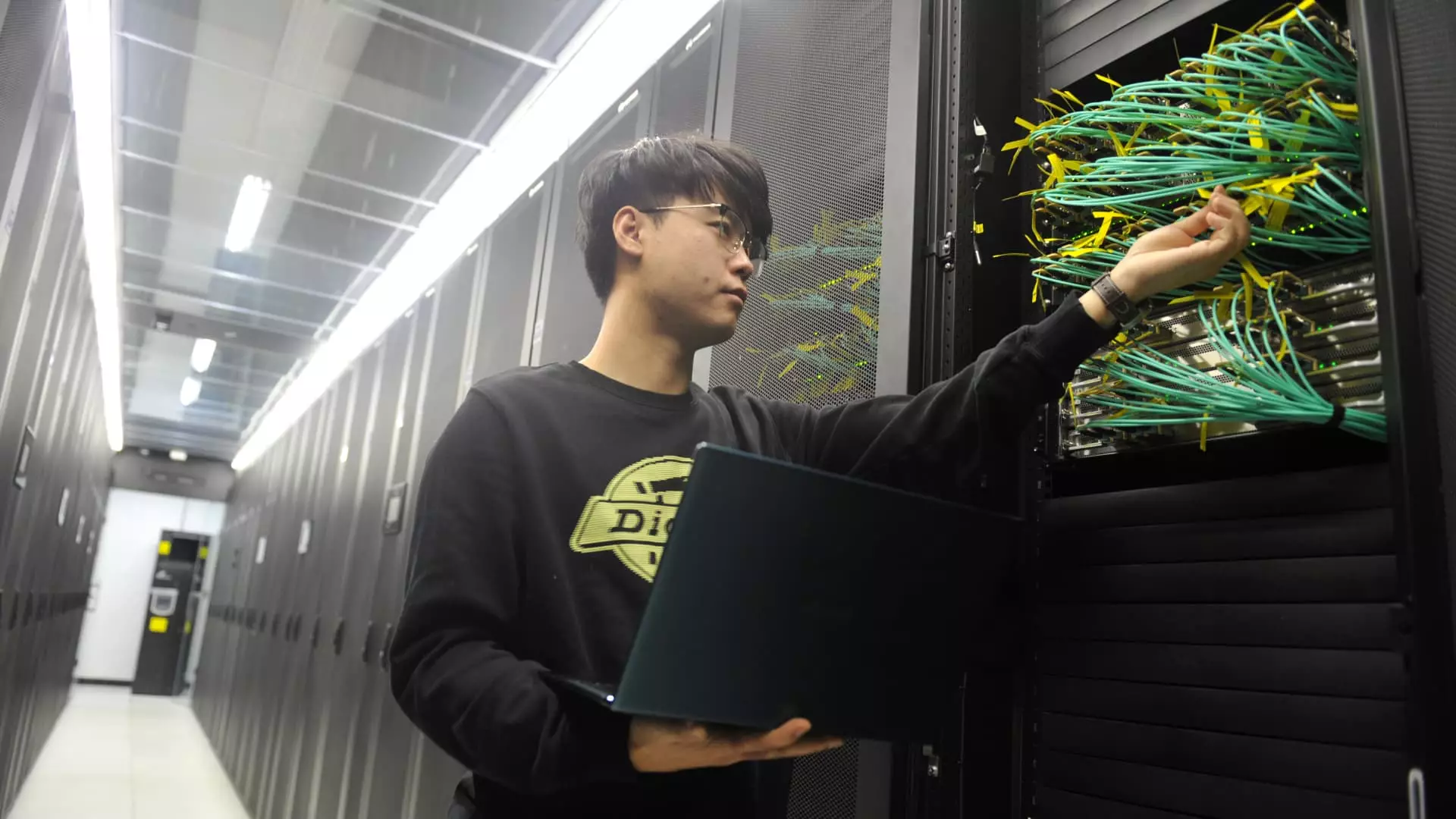As the world watches the ongoing trade tensions between the United States and China with bated breath, an intriguing facet of this conflict has emerged: the resilience of the Chinese economy through its betting on artificial intelligence (AI). While tariffs are a looming threat, Chinese firms are pivoting from direct competition with U.S. firms to harnessing AI technologies as a means of economic sustenance and growth. This shift could be a game-changer, fostering not just resilience, but potentially flourishing sectors within China’s economy. In stark contrast to the fearsome economic slowdown many analysts warn about, there’s an array of opportunities that are appearing clearer each day.
Government Support: The New Engine of Growth
At the core of this evolving landscape is the Chinese government’s strategic support for AI and technology development. Historically, crises often fuel innovation, and the current trade disputes are no exception. The government’s focus on domestic capability-building, especially after last year’s AI breakthrough by companies like DeepSeek, is a testament to its commitment to curtailing dependence on foreign technologies. As tariffs continue to bite, policies promoting local tech innovation could become violently intensified—a sword in Beijing’s arsenal to offset the impact of U.S. economic policies.
Analysts suggest we may witness an uptick in investments in digital infrastructure projects that directly feed into AI development. Notably, the government’s ambition to bolster national champions in the AI sector signals a proactive approach that could shield the economy from external shocks. While the U.S. grapples with trade complexities, China is poised to carve its niche in the global AI landscape.
Localized IT Boom: A Silver Lining in an Increasingly Hostile Environment
Interestingly, historical parallels can be drawn with prior trade disputes during former President Trump’s administration, where Chinese spending on local IT surged. Fast forward to today, we see ideological divisions morphing into technological rifts, which have inadvertently catalyzed rapid advancements in domestic IT capacities. Firms formerly caught in the crossfire are now redirecting their energy toward innovation, leading to greater market efficiencies.
The emergence of platforms like WPS and the rapid user growth they have showcased can be partially attributed to this reorientation. Companies such as Kingsoft Office and Kingdee are now innovating with vigor, in stark contrast to their earlier, more defensive tactics. This competitive pivot appears rooted in a new realization—the understanding that adaptation is crucial, and costs related to localization might actually invigorate existing corporate structures by fostering a more competitive atmosphere.
AI-Driven Corporate Resilience
Key players in the tech arena are not just adjusting; they are integrating generative AI directly into their core offerings. For instance, Kingsoft’s AI-enhanced WPS took the Chinese market by storm, drawing close to 20 million active users as organizations strive to innovate amidst uncertainty. This leap forward is not merely a response but a proactive strategy. Companies that were reactive in securing their digital foothold are now dual-focused on emerging technologies and increased market share.
Moreover, the potential returns on investments in AI applications are skyrocketing, with projections suggesting that the AI market alone could contribute notably to China’s GDP figures. Analysts anticipate that the sector could grow to represent a significant portion of economic output in the upcoming years. This marks a notable paradigm shift: rather than succumb to external pressures, Chinese companies seem more willing than ever to embrace domestic challenges and convert them into opportunities.
Economic Forecasts: The Uncertain Horizon
Despite the buoyancy in the domestic AI sector, economic predictions remain cautious amid rising geopolitical tensions. Institutions such as Goldman Sachs and Citi are tempering their expectations for China’s growth, raising red flags over a potential economic slowdown. The maxim that “politics makes strange bedfellows” has never felt more appropriate. The hardware and cloud computing sectors identify potential defendable niches. They may find themselves relatively insulated from tariff impacts as local demand swells and infrastructure investments continue.
While these considerations weigh heavily on corporate strategists, heeding the investment movements elucidated by analysts at Nomura provides a beacon of hope. Their evaluations suggest focused investment in data centers and cloud infrastructures as pathways to both financial footing and robust economic growth. Pursuing localized control of technologies might harbor long-term benefits, unlocking pathways to penetrate global markets where inefficiencies and uncertainties abound.
The trade war between the U.S. and China highlights the interconnectedness of global economies, but it also illustrates how fierce determination can yield resilience. The pursuit of AI-driven growth in China exemplifies the old adage: necessity breeds innovation. This approach not only acts as a countermeasure to economic headwinds but potentially reshapes the landscape of technology and economic development within China.

